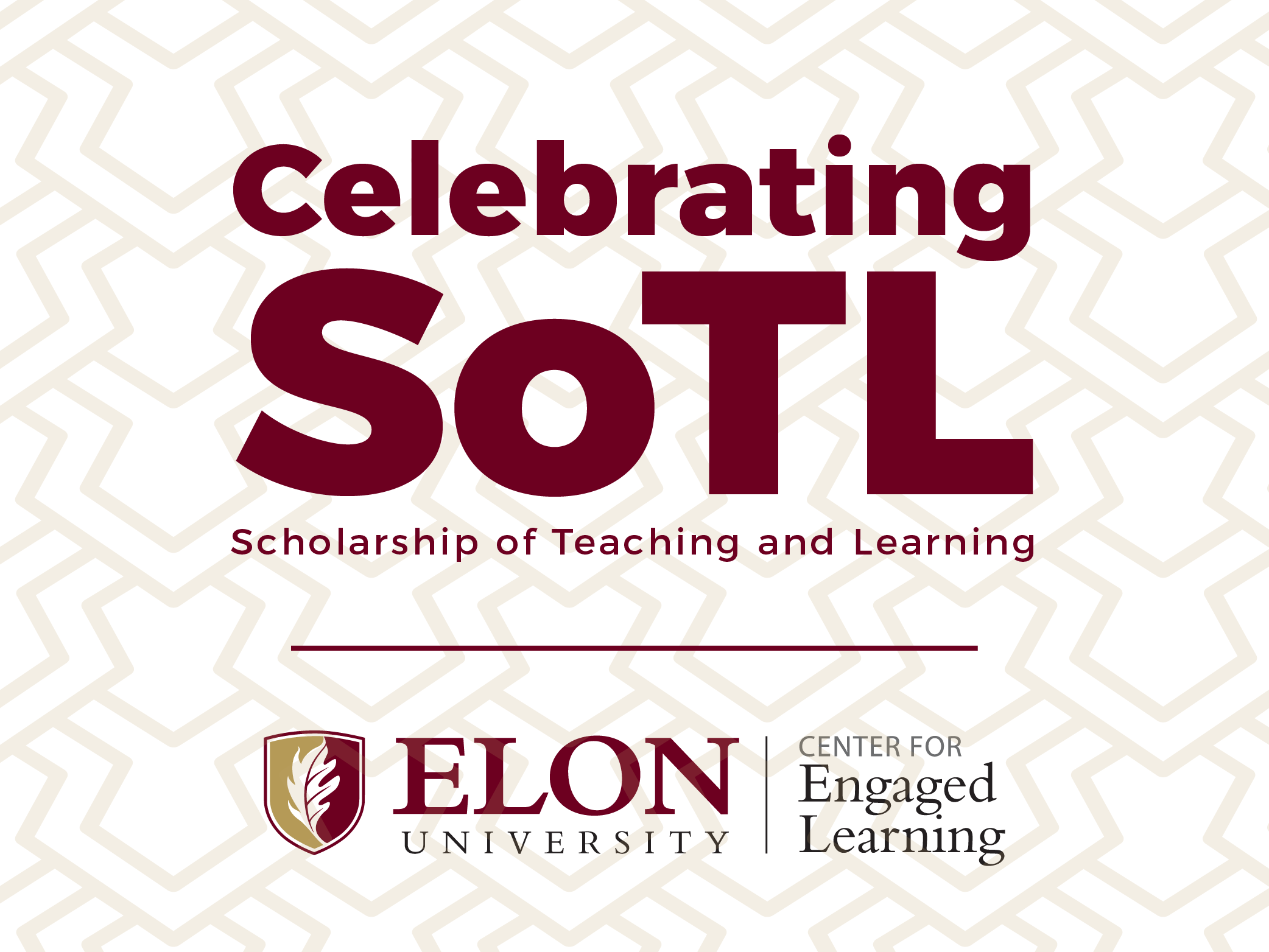A team of researchers is investigating self-sponsored writing (the writing we do outside of work and school) and discovering the essential role it plays in our lives.
Each spring, the Center for Engaged Learning (CEL), the Center for the Advancement of Teaching and Learning (CATL), and the Center for Research on Global Engagement (CRGE) join together to showcase research projects focused on the Scholarship of Teaching and Learning (SoTL). Due to COVID-19, we have shifted from our usual poster presentation session to an online version through a series of Today at Elon stories. Follow along each day as we share Elon scholars’ research on innovative teaching practices.

Do you journal? Post to Instagram or Facebook to share about your life and make connections with others? Have you written a toast for a friend’s wedding? Regardless of the form it takes, we all do this type of writing — writing that is not obligatory, not for work or school. Writing Studies scholars call it “self-sponsored writing,” and very little research has been done on it. Assistant Professor of English Heather Lindenman is part of a team working to change that.
Lindenman is part of the Center for Engaged Learning’s 2019-2021 Research Seminar on Writing Beyond the University, which is facilitating multi-institutional research on preparing students for the many types of writing they will do outside their coursework and after they graduate and enter the working world. Lindenman and her colleagues want to understand more about self-sponsored writing: What are people writing? What purposes does this writing serve, both for the individual and the larger world?
To find out, Lindenman’s research team surveyed over 700 people about their self-sponsored writing. In analyzing responses, they’ve found that the vast majority of people are engaging in multiple types of this kind of writing. Nearly everyone writes for the following purposes:
- To engage with others, which includes the writing people do to maintain relationships, build friendships, and connect with others;
- To establish identity, which takes many forms such as journaling, giving a speech, or writing in a publication about yourself; and
- To remember, document, and honor, which includes any type of writing that creates a record of past events.
The research team also did follow-up interviews to get more in-depth information about participants’ self-sponsored writing. Participants shared three samples of their own writing and discussed it with the researchers. These reflections allowed Lindenman and her team to dig deeper into questions about how this type of writing interacts with people’s identity and the relationship between self-sponsored writing and obligatory writing. It also provided rich examples of how writing is a pervasive and important part of people’s lives.
“When people are left to their own devices, they’re using writing to negotiate life in really meaningful ways,” Lindenman says.
For example, one participant told of how they use writing as an integral part of their recovery from substance abuse, and another spoke about writing a eulogy for a loved one. Even that long text chain with your mom or best friend that’s sitting in your phone right now — at first glance it seems unimportant, but in reality that kind of writing is an incredibly valuable way for us to manage emotions, maintain connections, and express ourselves.
Lindenman appreciates how CEL’s research seminar on Writing Beyond the University has allowed Writing Studies researchers to broaden ideas about what should be studied when we study writing. (Although other CEL teams are multi-disciplinary, Lindenman’s team members all represent the same field.) While it’s important to teach people to write for academic and work-life purposes, the role of writing in a person’s life actually encompasses much more.
“This project was about expanding a discipline’s boundaries,” she says. “The premise of this research is that writing can and should be studied from a wider lens, and it can encourage us to think more broadly and capaciously about the types of writing we can learn from.”
She also notes that without the deep collaboration with her seminar teammates, this research would not have been possible.“The reason this has been such a cool project is the people I’ve been able to work with,” Lindenman says. “None of us came into this project with the idea to study what we studied. But in combining our ideas and pushing each other, through a lot of hours of sitting in a room together and hanging out and having lunch and getting to know each other, we eventually came up with an idea that was better than anything any of us started with.”
The other members of her seminar team are Dana Driscoll from Indiana University of Pennsylvania, Andrea Efthymiou from Hofstra University, Matthew Pavesich from Georgetown University and Jen Reid from Marquette University.
Through its research seminars, the Center for Engaged Learning (CEL) facilitates multi-institutional research on engaged learning topics. Participants from institutions around the world collaborate over three years, producing scholarship that shapes research and practice globally. Learn more about CEL’s research seminars.



